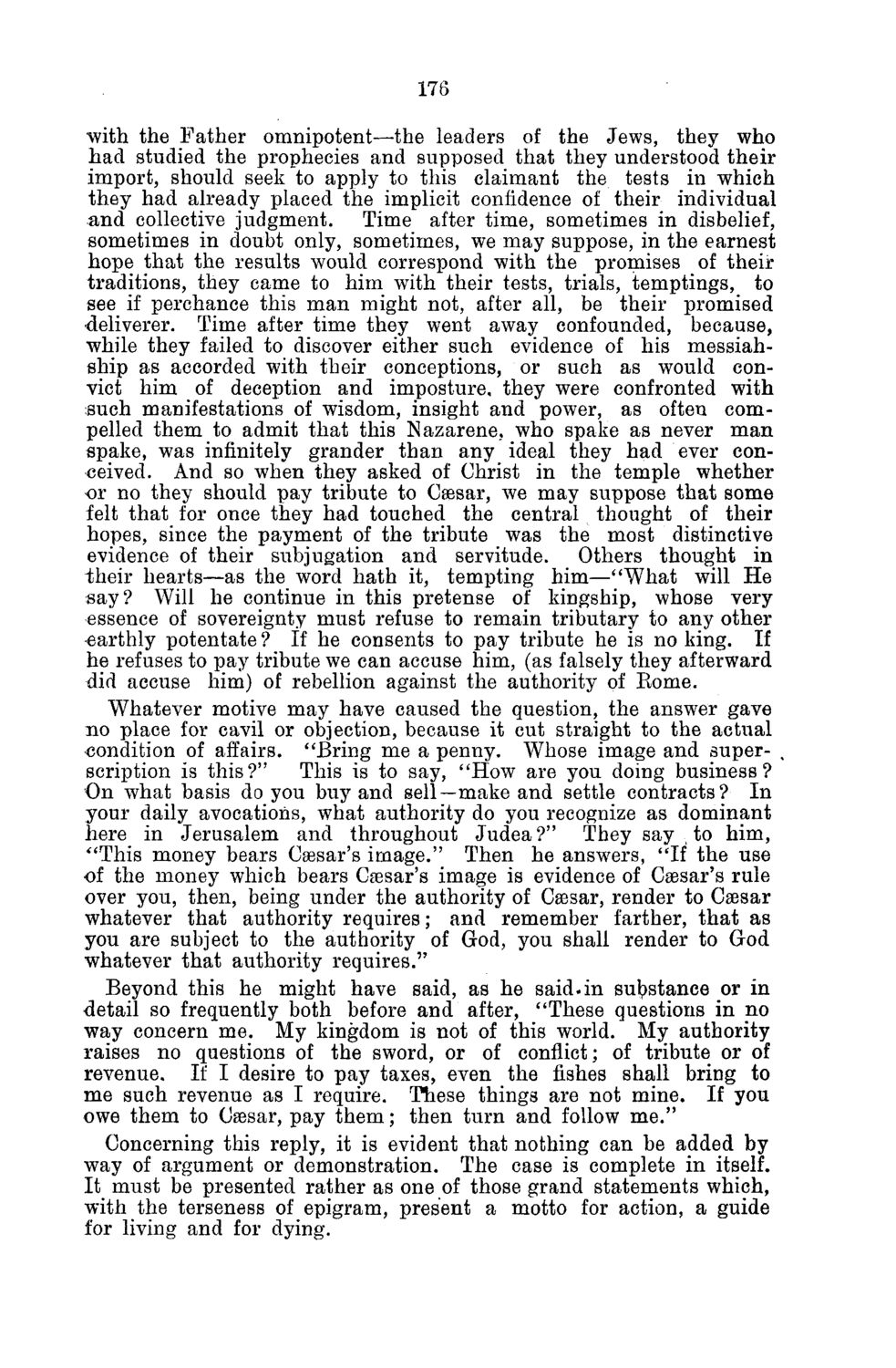| |
| |
Caption: Board of Trustees Minutes - 1886
This is a reduced-resolution page image for fast online browsing.

EXTRACTED TEXT FROM PAGE:
176 with the Father omnipotent—the leaders of the Jews, they who had studied the prophecies and supposed that they understood their import, should seek to apply to this claimant the tests in which they had already placed the implicit confidence of their individual and collective judgment. Time after time, sometimes in disbelief, sometimes in doubt only, sometimes, we may suppose, in the earnest hope that the results would correspond with the promises of their traditions, they came to him with their tests, trials, temptings, to see if perchance this man might not, after all, be their promised deliverer. Time after time they went away confounded, because, while they failed to discover either such evidence of his messiahship as accorded with their conceptions, or such as would convict him of deception and imposture, they were confronted with such manifestations of wisdom, insight and power, as often compelled them to admit that this Nazarene, who spake as never man spake, was infinitely grander than any ideal they had ever conceived. And so when they asked of Christ in the temple whether or no they should pay tribute to Caesar, we may suppose that some felt that for once they had touched the central thought of their hopes, since the payment of the tribute was the most distinctive evidence of their subjugation and servitude. Others thought in their hearts—as the word hath it, tempting him—"What will He say? Will he continue in this pretense of kingship, whose very essence of sovereignty must refuse to remain tributary to any other earthly potentate ? If he consents to pay tribute he is no king. If he refuses to pay tribute we can accuse him, (as falsely they afterward did accuse him) of rebellion against the authority of Borne. Whatever motive may have caused the question, the answer gave no place for cavil or objection, because it cut straight to the actual condition of affairs. "Bring me a penny. Whose image and superscription is this?" This is to say, "How are you doing business? On what basis do you buy and sell—make and settle contracts? In your daily avocations, what authority do you recognize as dominant here in Jerusalem and throughout Judea?" They say to him, "This money bears Caesar's image." Then he answers, "If the use of the money which bears Caesar's image is evidence of Caesar's rule over you, then, being under the authority of Caesar, render to Caesar whatever that authority requires; and remember farther, that as you are subject to the authority of God, you shall render to God whatever that authority requires." Beyond this he might have said, as he said-in substance or in detail so frequently both before and after, "These questions in no way concern me. My kingdom is not of this world. My authority raises no questions of the sword, or of conflict; of tribute or of revenue. If I desire to pay taxes, even the fishes shall bring to me such revenue as I require. These things are not mine. If you owe them to Caesar, pay them; then turn and follow me." Concerning this reply, it is evident that nothing can be added by way of argument or demonstration. The case is complete in itself. It must be presented rather as one of those grand statements which, with the terseness of epigram, present a motto for action, a guide for living and for dying.
| |